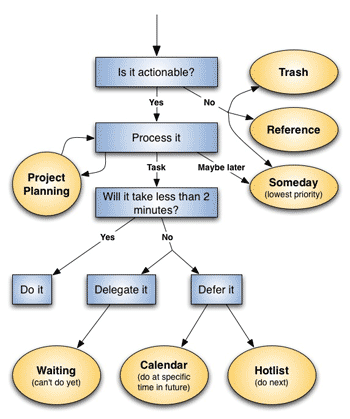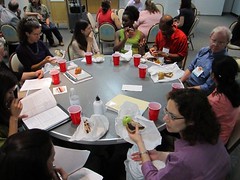| Namesake of the pomodoro technique. |
While there are plenty of big-picture topics that are worth addressing (e.g. work-life balance, setting yourself up for your career after school), this post is about the nitty-gritty tools and techniques that I've found useful in accomplishing the major tasks of grad school - namely reading, writing, and research.
1. Zotero: A lifesaver. This reference management software allows you to keep track of all your reading, along with notes and tags, and automatically insert citations and generate bibliographies. There are plenty of other tools (e.g. End Note) that help you can do this, but Zotero is extra awesome because it's free (at least up to 100MB), allows you to share your libraries, and is constantly improving. There are plenty of others, but the important thing is to begin using a reference management system as soon as possible. Because you will be reading many many things. Mendeley and Papers 2 (which integrates reference management into paper writing) come highly recommended by others.
2. The pomodoro technique : Alternating periods of hard focus with breaks. Sounds simple, no? But beginning each chunk of work with an end in mind can really improve productivity.
3. Freedom: This keeps you from going online for specified periods of time. Sure, you can do this other ways, but this is by far the simplest. It's not free, but it's only $10 and is well worth it. I've found this to be particularly effective in combination with the pomodoro technique - I set my computer to be offline for 25 minutes, and when I get notified that my time is up, I know it's time for a 5 minute break.
4. 750words.com: Journal writing is hardly a new idea, but 750 words is an awesome and fun tool for daily brain dumps, which can help not only to clear your mind each day, but also make writing easier. Some people have no fear of the blank page, but for those who do, this can really help with that.
5. GTD: Getting Things Done is a book and a productivity system that I was introduced to years ago when I worked in the tech sector (it was pretty huge among geeks in the early aughts). While I don't follow the full system, and think some aspects of it are cumbersome, there are several GTD concepts/techniques that I consider essential, especially when there are way to many things to get done.
 |
| Surrounded by stacks of papers? GTD can help. |
- Next Actions : Get rid of abstract todo items that invite procrastination, and replace them with projects and concrete Next Actions. Probably the most powerful concept in the GTD system.
- Inbox to zero : Process email instead of just reading it, and always strive to get your inbox to empty. Create a separate action folder for things that require more time, and check that regularly.
- Simple filing system: Create a new folder even if you only have 1 item to put into it, get rid of hanging file folders and categories, alphabetize everything, and use a nice label maker so you can find things. Because if it takes you more than a few seconds to file something, you won't do it.
- 2 minute rule : If it can be done in less than 2 minutes, do it now.
6. The Single System: I was only recently introduced to this in a great book called "Demystifying dissertation writing," but I wish I had read it my first year. This is particularly helpful for those with fear of the blank page, or those who struggle with writing lit reviews. It provides a logical system for getting through your readings, taking notes, and turning it all into a coherent final product.
7. The DissCo: If you're like me, you thrive on variety, a fast-paced work environment, and teamwork. In which case...I'm sorry. Because that is not what grad school is about. It's a long and sometimes lonely road, especially when it comes to the major PhD hurdles: thesis, comprehensive/qualifying exams, and dissertation. Though these are ultimately hurdles you have to jump yourself, you can still create a sense of teamwork and community by meeting with other students. I do this with others, and we call it The DissCo - for Thesis Dissertation and Comps. You can schedule regular times to meet and include goal setting and reviews, or just meet informally and work side by side. Because what sounds better - "I'm going to sit next to people while staring at my laptop for 9 hours" or "I'm going to The DissCo"?
Of course, no technique will help you if you're not sure why you're in school, if you're too distracted by other pursuits to make it a priority, or if you're not willing to put in countless hours of hard work. But if these conditions are met, productivity tools and techniques can make life and work way easier. I'm sure there are tons of other suggestions that other people have - including current grad students and those who've survived it - so please share them in the comments!
Gina Cardazone, M.A.
University of Hawai`i, Mānoa

